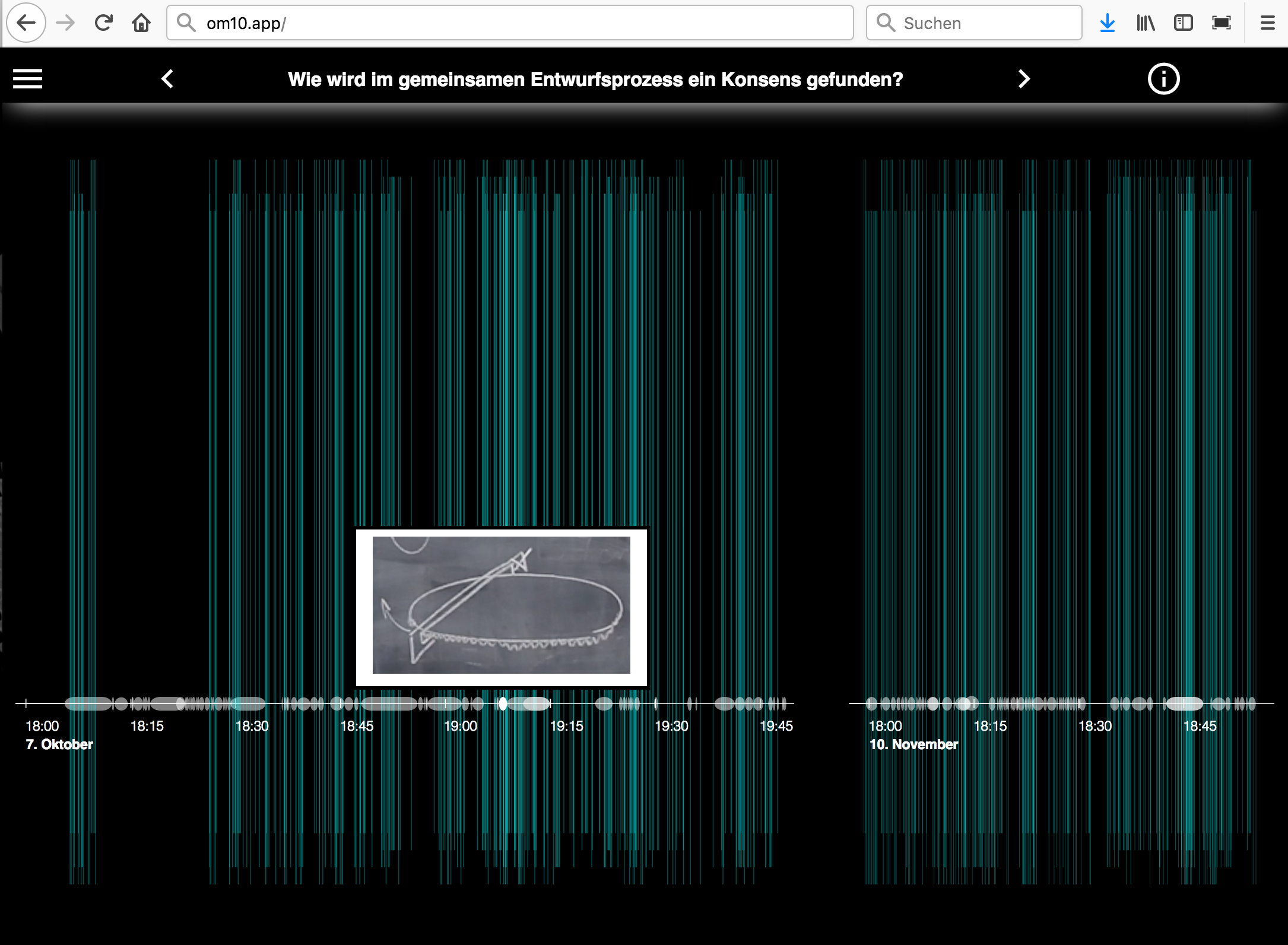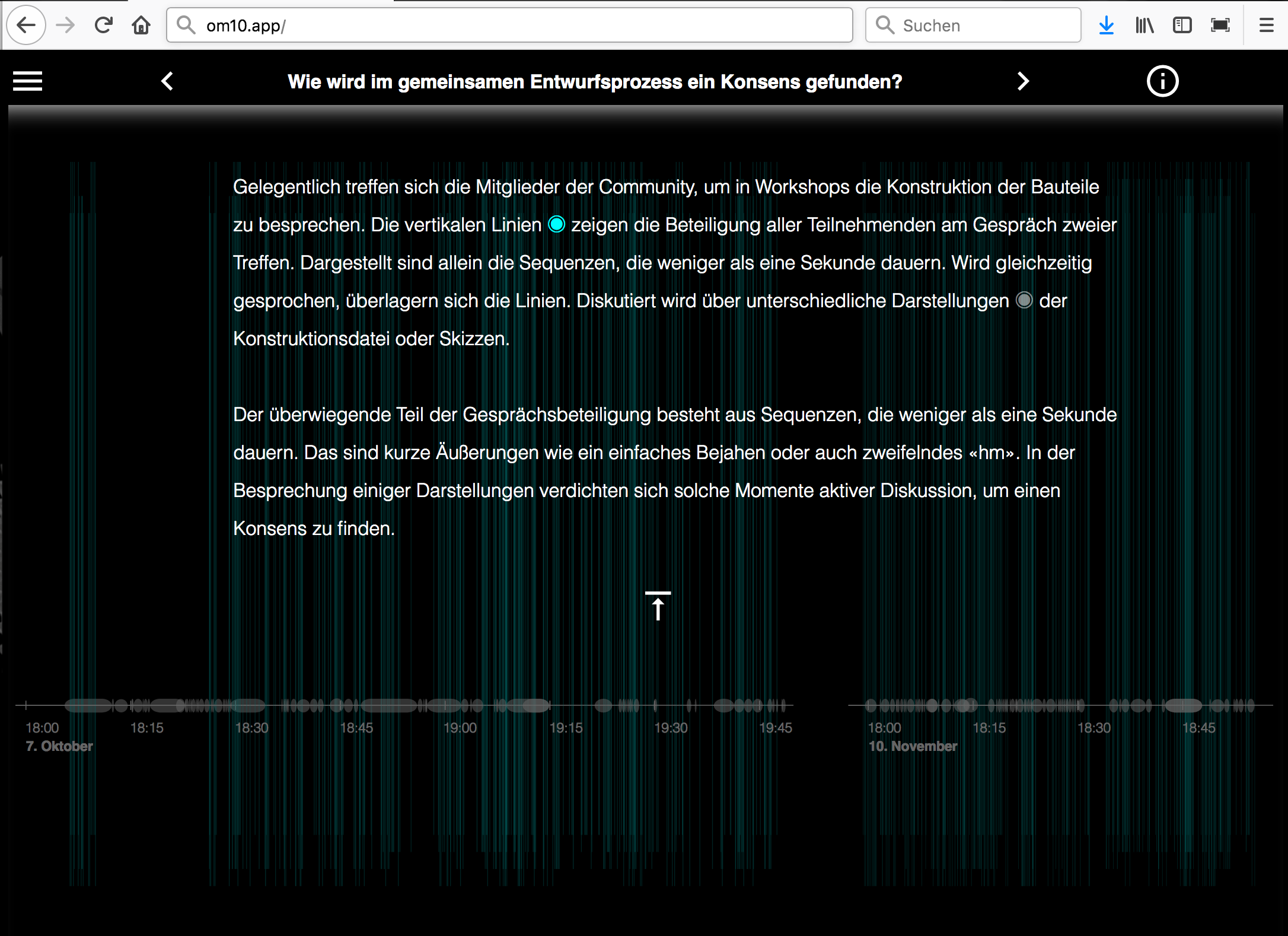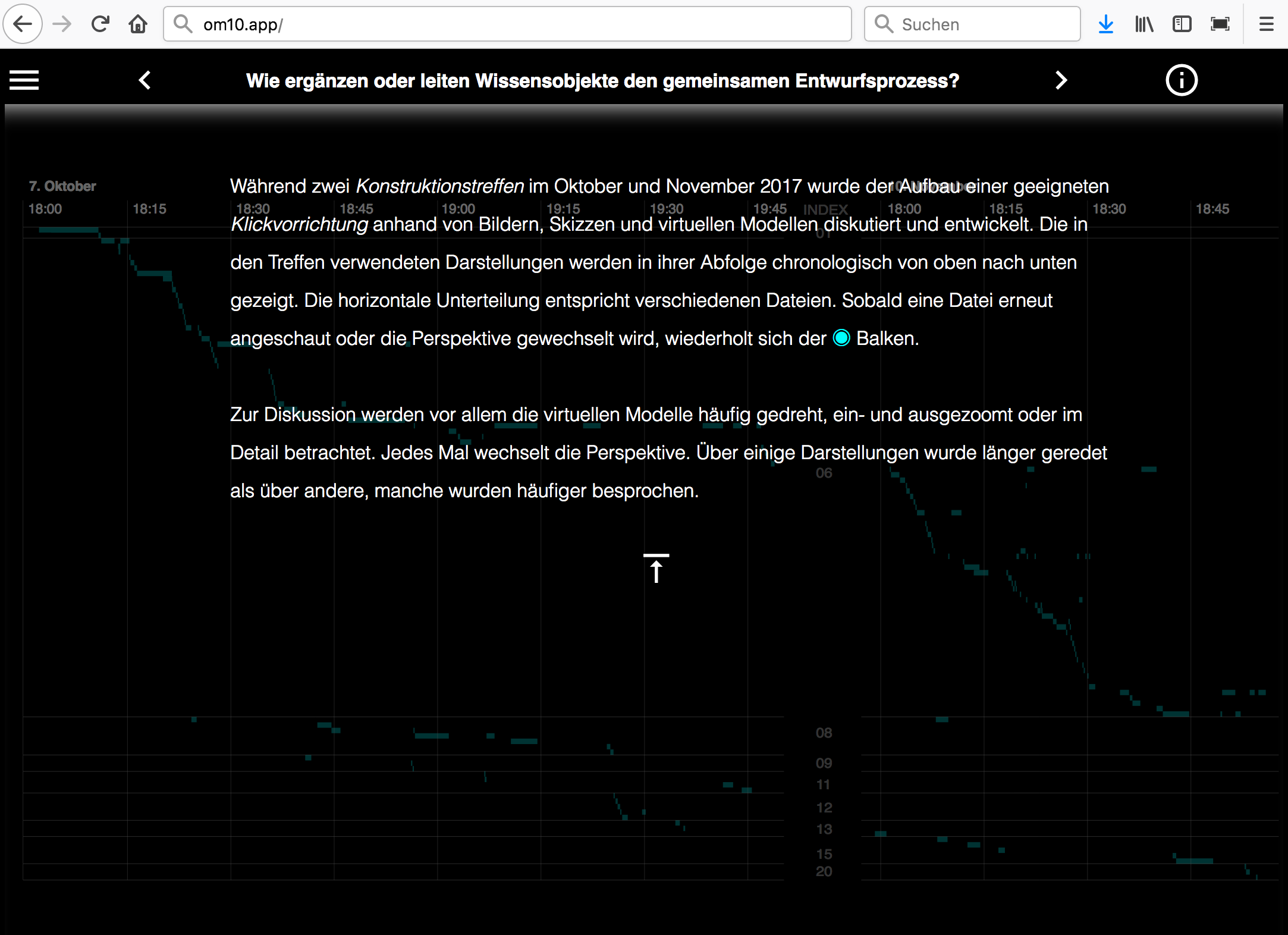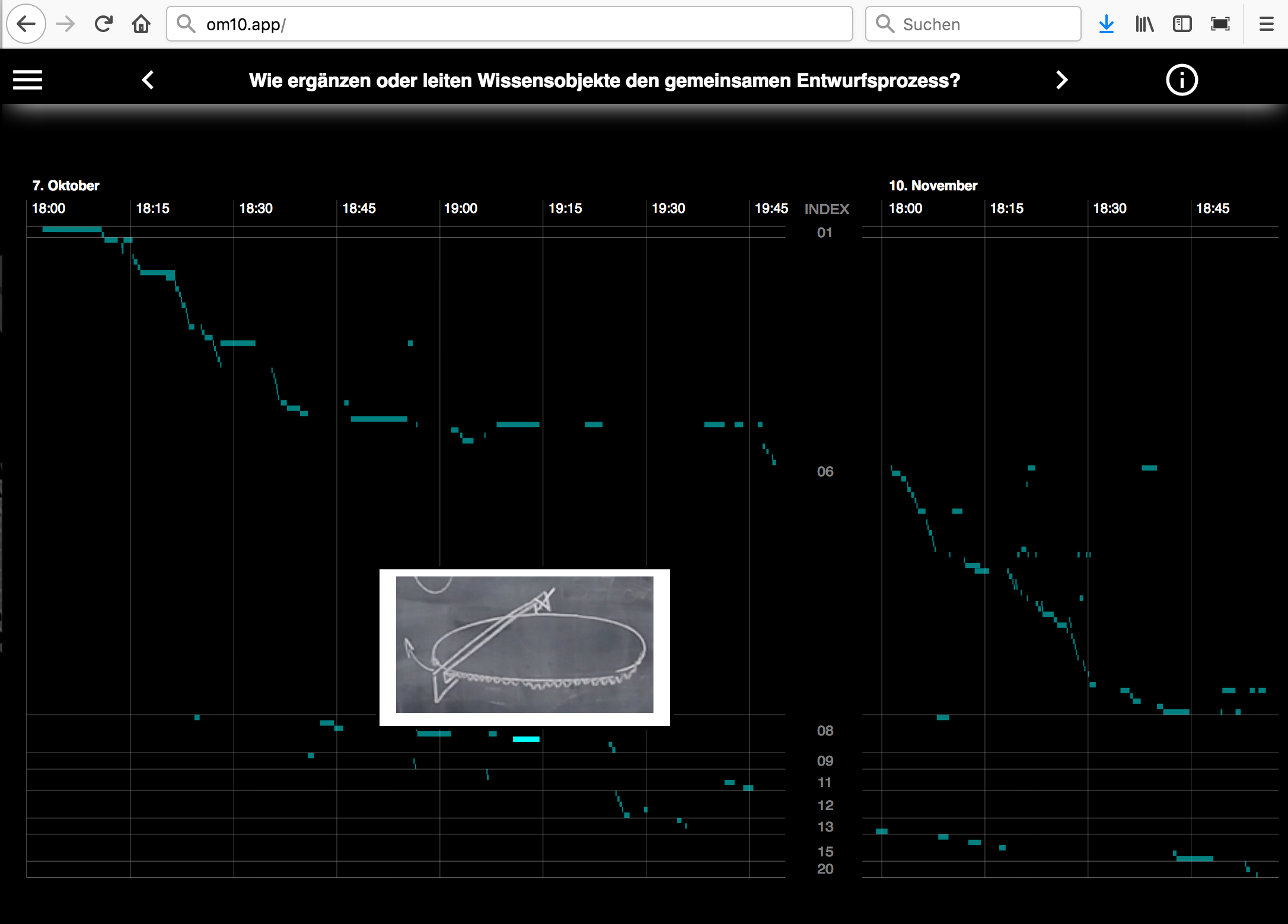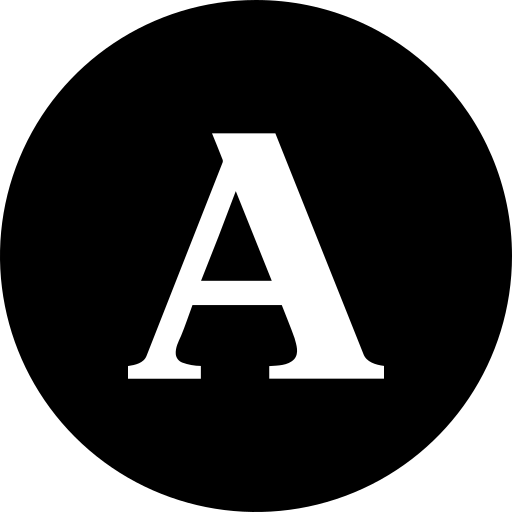Open Movement
HGK Basel
2017
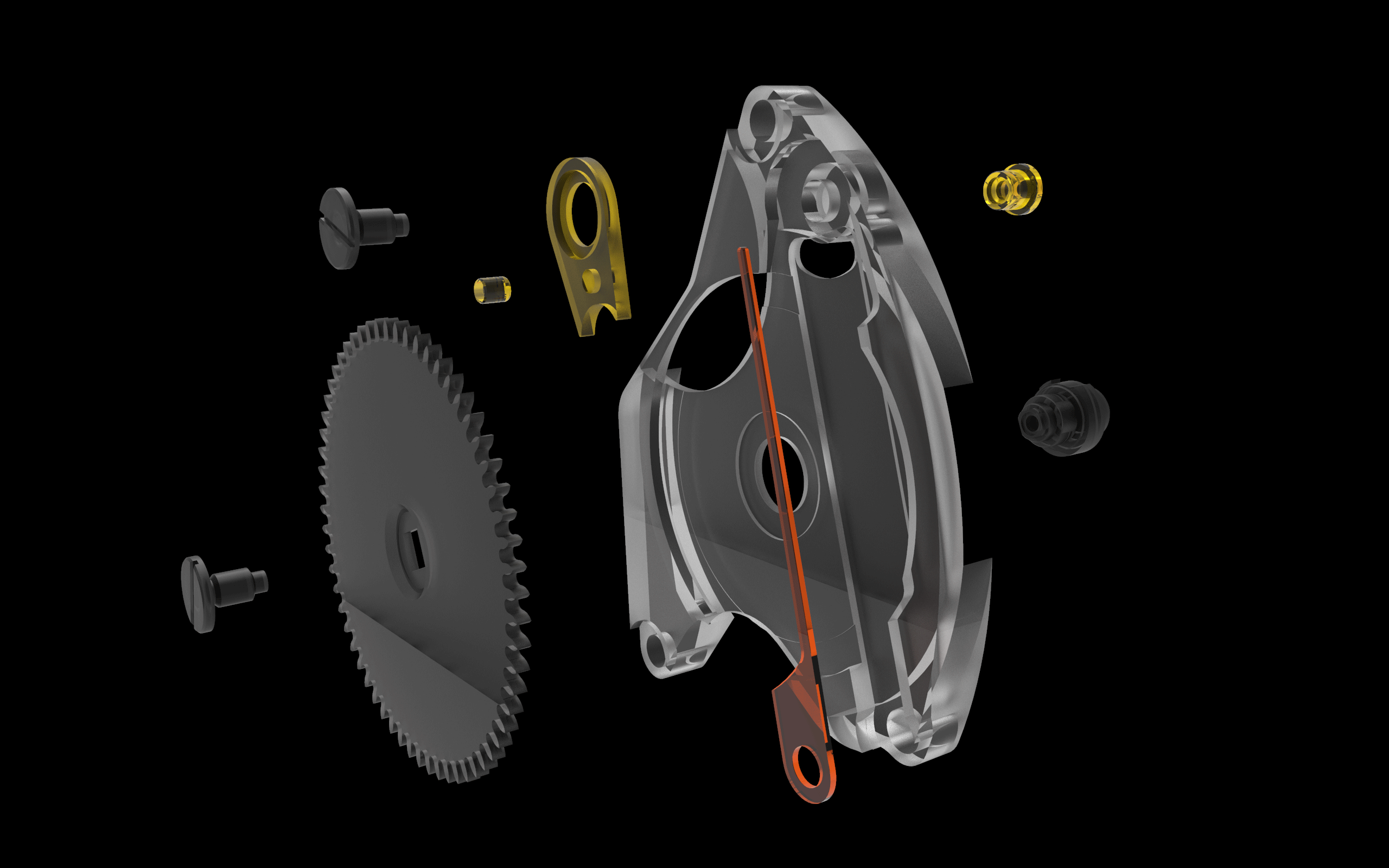
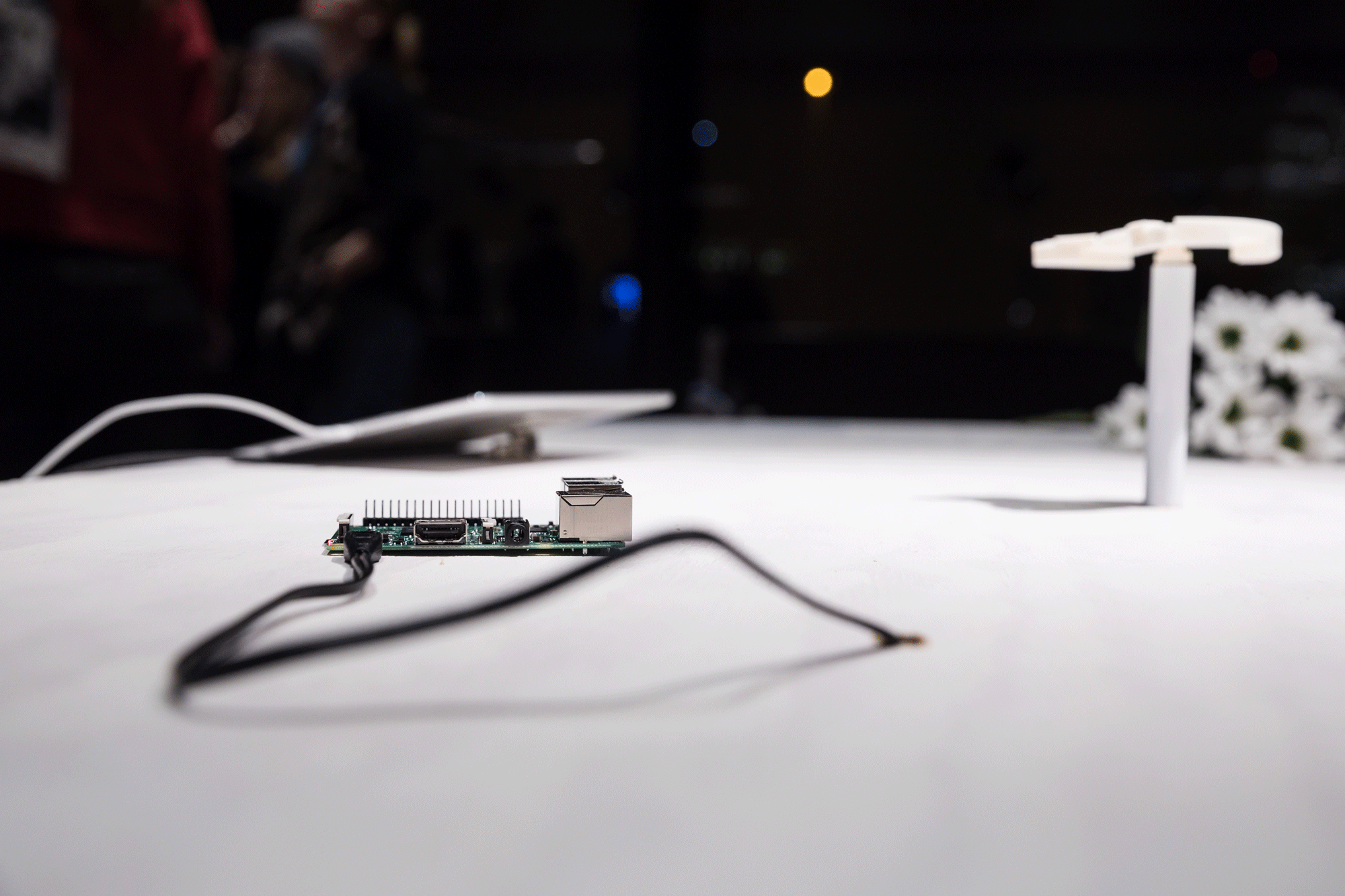
Within my master thesis, I dealed with collaboration in „open design“ processes. During three months, I supervised the „Open Movement“, a Swiss community that was founded around the idea to create an open-source clockwork. To explore their collaborative process, I combined methods of ethnographic fieldwork with those of visual design. To depict a process that is driven by human and non-human actors, I mapped dynamics of on- and offline activities, of the closer and the wider community, the used tools and most often appeared figures.
The resulting diagrams became „visual theses“, that draw non-linear connections between the obsered “knowledge objects”. The experimental character of the representation gives access to the intertwined structure of the collected data and problematizes, that making sense of data is a very interpretative subject matter. The diagrams don‘t reveal insights at a first sight, rather they need to be decoded and read like an own (visual) language.
The interactive diagrams are embedded in a mobile application, that could be accessed during the graduation show via an own wifi-network and was independent from the World Wide Web through a raspberry piratebox. This decision should users make aware, that the popular infrastructures of the internet and it‘s restrictive paradigms are neither naturally given, nor they are the only possible way to interact virtually – a mindset, that is key to understand open-source-driven activities.
The resulting diagrams became „visual theses“, that draw non-linear connections between the obsered “knowledge objects”. The experimental character of the representation gives access to the intertwined structure of the collected data and problematizes, that making sense of data is a very interpretative subject matter. The diagrams don‘t reveal insights at a first sight, rather they need to be decoded and read like an own (visual) language.
The interactive diagrams are embedded in a mobile application, that could be accessed during the graduation show via an own wifi-network and was independent from the World Wide Web through a raspberry piratebox. This decision should users make aware, that the popular infrastructures of the internet and it‘s restrictive paradigms are neither naturally given, nor they are the only possible way to interact virtually – a mindset, that is key to understand open-source-driven activities.
FHNW Basel
Institute Integrative Design
Supervisors
Barbara Hahn,
Dr. Christine Schranz
Visualizations
Institute Integrative Design
Supervisors
Barbara Hahn,
Dr. Christine Schranz
Visualizations
- Process through the exchange of knowledge objects
-
How are knowledge objects used
-
How do knowledge objects affect collaboration
-
Reach of consensus
- Affects by media on discussion
